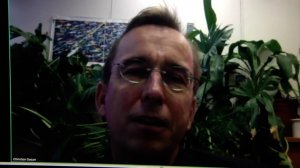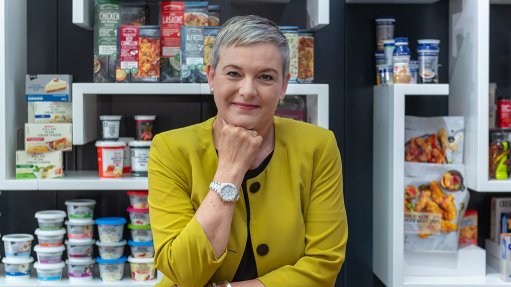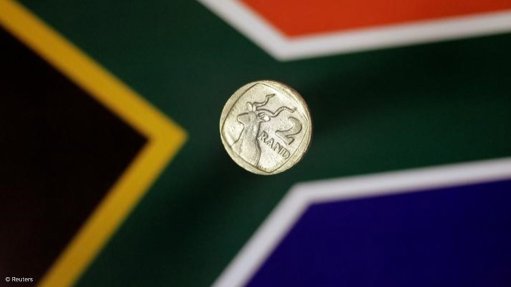DTIC, partners launch Global Eco-Industrial Parks Programme in South Africa

Unido programme manager Christian Susan outlines what an eco-industial park is and what it entails.
The Department of Trade, Industry and Competition (DTIC) and the National Cleaner Production Centre South Africa (NCPC-SA), in partnership with the United Nations Industrial Development Organisation (Unido) and the Swiss State Secretariat for Economic Affairs (Seco) on December 7 officially launched the Global Eco-Industrial Parks Programme (GEIPP) in South Africa.
DTIC deputy director-general Sipho Zikode commented during the virtual launch ceremony on December 7 that South Africa was working towards the UN’s Sustainable Development Goals (SDGs).
Ensuring the country's infrastructure and industrial processes meet sustainable production requirements was vital, he stated.
South Africa was chosen to host the GEIPP as the concept of eco-industrial parks strongly supports the DTIC’s Industrial Park Revitalisation Programme (IPRP), noted Zikode.
He pointed out that the country had already invested R760-million in the IPRP.
The GEIPP is funded by Seco and implemented internationally by Unido. The NCPC-SA will be the implementer of the three-year GEIPP in South Africa, following a successful pilot project in 2018 to 2019.
Ambassador of Switzerland Dr Nicolas Brühl welcomed the launch, which marks the first phase of this project in the country.
He said that, with climate change hindering economic and sustainable development, there needed to be a move away from business as usual in the country.
He acclaimed that eco-industrial park developments had emerged as a means for more sustainable development and that the GEIPP would help to lower South Africa's carbon emissions.
Brühl also mentioned that the Swiss government was strongly focused on competitiveness and resource efficiency and that this programme was an integral element of that.
He noted that competitive economies based on sustainable growth contributed towards economic and community development.
He highlighted that the programme was linked to the UN SDGs, especially goal eight, which related to decent work and economic growth, and goal 13, which related to climate action.
Unido programme manager Christian Susan explained that an eco-industrial park was a community of manufacturing and service businesses located together on common property, with member businesses seeking enhanced environmental, economic and social performance through collaboration in managing environmental resource issues.
He said the GEIPP programme was implemented through two components, namely country interventions and global knowledge development.
For the former, the park is mainstreamed in relevant policy and regulations, and eco-industrial park approaches are implemented in pilot parks. For the latter, eco-industrial tools are developed and capacity is enhanced.
In each country, the programme targets one park as a model park, three to four other parks for technical assistance and six to eight further parks for awareness and training. The parks are chosen using an assessment of 51 indicators in the international framework for industrial parks.
In South Africa, the East London Industrial Development Zone has been chosen to serve as the model park.
GEIPP chief technical adviser Klaus Tyrkko noted that, in the assessment of parks in the country, these showed large improvement potential, reflecting a willingness to change and develop.
The highest identified improvement potential is in park management, followed closely by environment.
Article Enquiry
Email Article
Save Article
Feedback
To advertise email advertising@creamermedia.co.za or click here
Press Office
Announcements
What's On
Subscribe to improve your user experience...
Option 1 (equivalent of R125 a month):
Receive a weekly copy of Creamer Media's Engineering News & Mining Weekly magazine
(print copy for those in South Africa and e-magazine for those outside of South Africa)
Receive daily email newsletters
Access to full search results
Access archive of magazine back copies
Access to Projects in Progress
Access to ONE Research Report of your choice in PDF format
Option 2 (equivalent of R375 a month):
All benefits from Option 1
PLUS
Access to Creamer Media's Research Channel Africa for ALL Research Reports, in PDF format, on various industrial and mining sectors
including Electricity; Water; Energy Transition; Hydrogen; Roads, Rail and Ports; Coal; Gold; Platinum; Battery Metals; etc.
Already a subscriber?
Forgotten your password?
Receive weekly copy of Creamer Media's Engineering News & Mining Weekly magazine (print copy for those in South Africa and e-magazine for those outside of South Africa)
➕
Recieve daily email newsletters
➕
Access to full search results
➕
Access archive of magazine back copies
➕
Access to Projects in Progress
➕
Access to ONE Research Report of your choice in PDF format
RESEARCH CHANNEL AFRICA
R4500 (equivalent of R375 a month)
SUBSCRIBEAll benefits from Option 1
➕
Access to Creamer Media's Research Channel Africa for ALL Research Reports on various industrial and mining sectors, in PDF format, including on:
Electricity
➕
Water
➕
Energy Transition
➕
Hydrogen
➕
Roads, Rail and Ports
➕
Coal
➕
Gold
➕
Platinum
➕
Battery Metals
➕
etc.
Receive all benefits from Option 1 or Option 2 delivered to numerous people at your company
➕
Multiple User names and Passwords for simultaneous log-ins
➕
Intranet integration access to all in your organisation



















